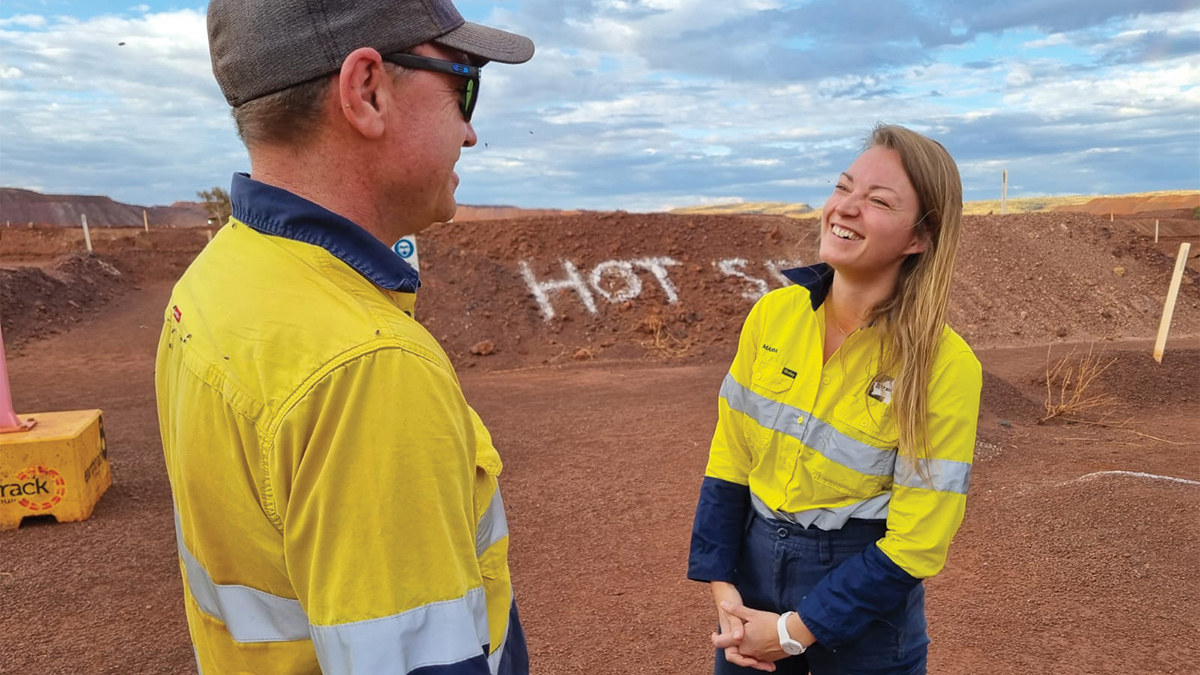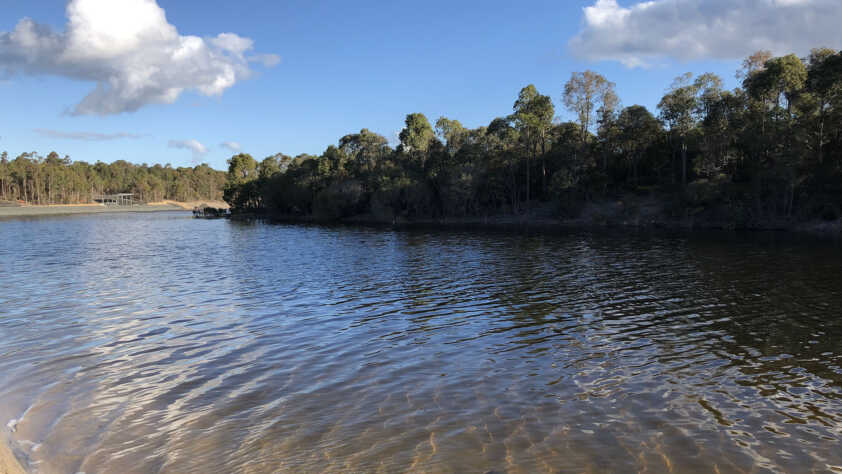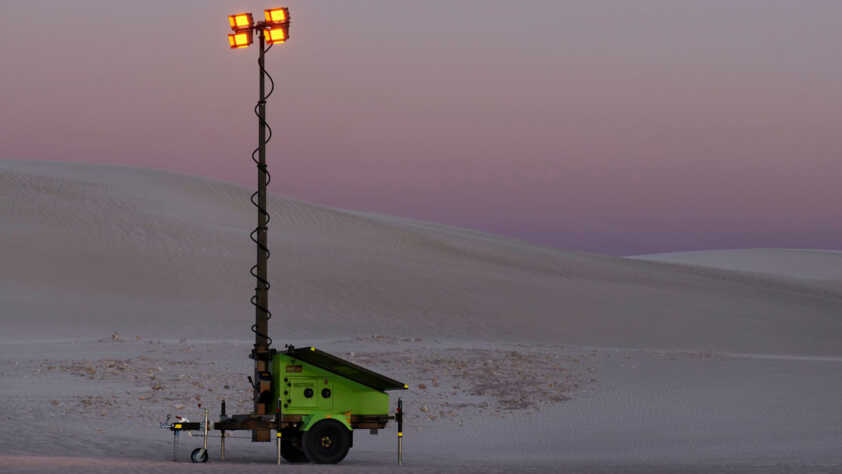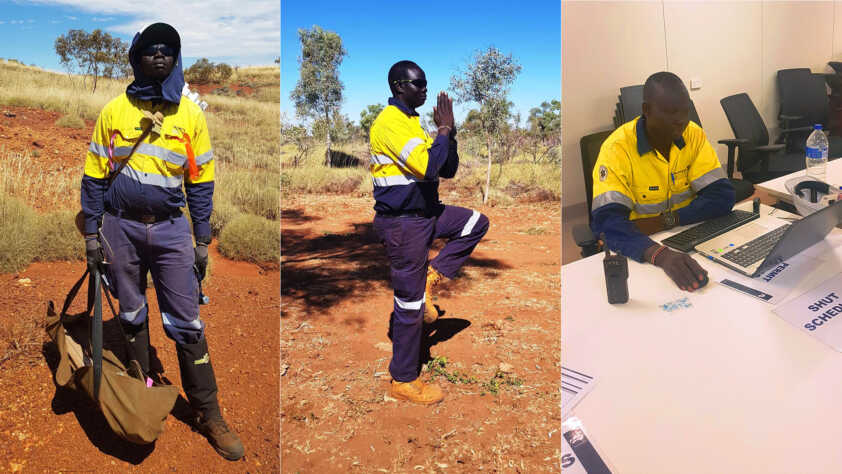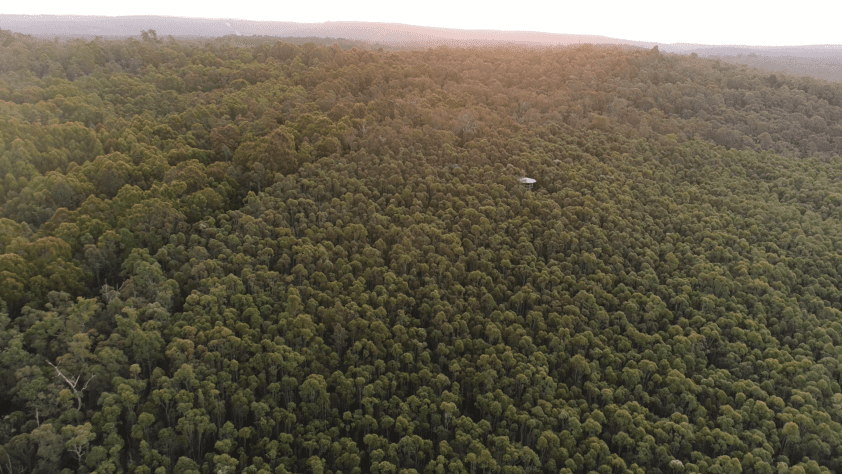Mine sites and accommodation villages very much represent a “home away from home” for the workers who occupy them.
They can be thousands of kilometres away from where those workers usually reside, and the colleagues they share living and eating facilities with can come from any walk of life.
But there’s a genuine and extremely important sense of “family” to life on site, one that’s being tapped into by Resourceful Mind, a new peer support-based mental health initiative for the WA mining and resources sector.
The product of a long-term partnership between Lifeline WA and the Chamber of Minerals and Energy of WA (CME), Resourceful Mind aims to identity go-to people among on-site communities – Minders as they eventually become known – and provide them with the training they need to navigate challenging conversations with colleagues and, if necessary, steer them towards extra assistance.
Roy Hill truck operator Maria Robinson was among the 120 Minders to graduate from a successful pilot program that kicked off in 2021.
“My roster is two weeks on and two weeks off – and that means six months of my year is spent in one world and six months is spent in another,” she says.
“You have two sets of family, those on site and those at home. And for those with little children, it’s six months out of the year that they are away and missing their development, which is tough.
“We start work at 5am and you can’t really be making calls to family at that point. We’re not home until at least 6pm or 7pm, and by then of course you’re exhausted.
“But on the other side of things, the family that we have on site is so important. And I think at Roy Hill because it’s just one big mine site [in the Pilbara], there are so many people that you almost get to choose the types of personalities that you want to fit in with – which is a luxury.”
Robinson said mental health has been a long-time passion after experiencing bullying in her own childhood.
“I don’t think I know anybody that hasn’t been affected in terms of mental health at some point in time,” Robinson said.
“If there’s anything that I could do to help friends and family, I would do. Over the years, that’s just been something of mine, having a bit of compassion.
“I think a lot of people probably don’t take time just to listen – and also to really care – when they ask the question ‘are you OK?’.
“Resourceful Mind doesn’t just help the person who needs to talk, it also helps us as Minders to broaden our understanding.
“If you are someone who is compassionate and a good listener, this program really puts that into practice.”
‘When I’ve got a problem, I speak to Bob’
Resourceful Mind has its foundations in the work CME and Lifeline WA have been undertaking in partnership since a Parliamentary Inquiry into the mental health impacts of fly-in, fly-out work in 2014 and 2015.
It was clear that there were mental health challenges specific to the mining and resources sector – particularly for remote sites – and that a tailored solution was needed, with feedback highlighting the potential advantages of a peer support-based program.
“We realised that Lifeline WA provided a lot of products around training but none of them were bespoke to fly-in, fly-out workers,” Lifeline WA Chief Executive Lorna MacGregor said.
“All of our training had really been designed for boardrooms and one of the most purchased training workshops was mental health first aid, which was two days of in-classroom training.
“When we went out to sites and asked frontline staff about their mental health experiences and how they would go about learning to improve their wellbeing and that of others, all of them said that if they had a problem they would speak to ‘Bob.’ And every single shift had a ‘Bob.’
“The other things they told us was that they didn’t like ‘death by Powerpoint’ and ‘shiny pants.’
“That was really the start of what Resourceful Mind has become and what underpins it. We engaged a consultant who specialised in human-centred design and they worked with the sector and worked with us and we created the program.”
The Resourceful Mind pilot involved CME member companies Roy Hill, Mineral Resources, Woodside and Simcoa, and was the subject of a detailed research project by Edith Cowan University which deemed it to be fit-for-purpose and psychologically safe for Minders.
The program has been refined to include five core training sessions delivered by Lifeline WA’s crisis supporters that can be completed over a three-month period, a variety of elective e-learning topics, regular follow-up group coaching and wellbeing sessions, and skills development modules based on challenging and relevant topics, such as domestic and family violence, mental illness, gambling and sexual harassment and assault.
A growing group of Minders
There are currently 270 aspiring Minders in training, with more set to come as Resourceful Mind is rolled out more widely across the WA mining and resources sector.
“What makes Minders particularly effective in fly-in, fly-out environments is the strength those environments have in creating communities,” MacGregor said.
“We know that if you can leverage a community, it’s a protective factor for mental health and wellbeing.
“One of the unique things about Resourceful Mind is that on top of Minders doing the training and having access to additional skills development, they also have a minimum of four times a year where they undertake coaching sessions – where a group of people come together to talk about their skills, any problems they might be having and to ensure their wellbeing.
“They do that online and one of the unintended benefits of the program has been that participants now feel they are part of a broader group of Minders across the sector.
“So if a Minder has had difficulty with a particular situation, our Lifeline WA crisis supporters have almost undoubtedly had a similar situation and can share professional support.
“But then they also have the support of peers who might say ‘I handled that this way’ or ‘perhaps you could do this’.”
CME Manager of Health, Safety and People Laila Nowell said Resourceful Mind had the capability to be employed at any site, irrespective of whether the workforce was FIFO, drive-in drive-out, residential or a combination thereof.
She said the program was an important addition to the wide range of mental health and wellbeing initiatives already being undertaken by WA mining and resources operations.
“We believe Resourceful Mind is a really valuable tool given it has been specifically designed for our sector,” Nowell said.
“But it’s also important to note that it’s not intended to be a one-stop shop for the mental health of the workforce.
“In many instances, Minders will steer their colleagues towards further professional assistance. The program also complements a significant amount of ongoing work in this space.
“In recent years, and particularly since the onset of the COVID-19 pandemic, we’ve seen mining and resources companies finding innovative ways to facilitate positive mental outcomes.
“This includes increasing bandwidth and data allowances on site to facilitate better connection to home, providing confidential access to online or over-the-phone support, community building initiatives such as movie nights or fitness classes, and ensuring appropriately trained people are available on site, whether that be health and wellbeing advisers, psychologists or mental health first aiders.”
‘Not everyone is an extrovert’
Like Robinson, Mark Handyside – a specialist in haulage projects and contracts – was one of a 79-strong contingent at Roy Hill who became Minders as part of the Resourceful Mind pilot program.
He said that although companies such as Roy Hill went to great lengths to help workers socialise and feel comfortable on site, some people may initially feel more comfortable engaging one-on-one with Minders.
“If you’ve got one or two people on site that you’re friendly with, that you can meet up with and discuss stuff, that’s great,” Handyside said.
“But if you don’t have that, it can become a bit isolating. Not everyone is extroverted or has a good social network and those are the people who are probably most at risk.
“It’s important to have the ability to recognise when people may need some support – whether it’s someone who is usually social and well-connected but is withdrawing, or people that are new on site and not involved in social activities.
“The Minder training was certainly geared to be able to recognise that behaviour and also prepare you to have the conversations after that.”
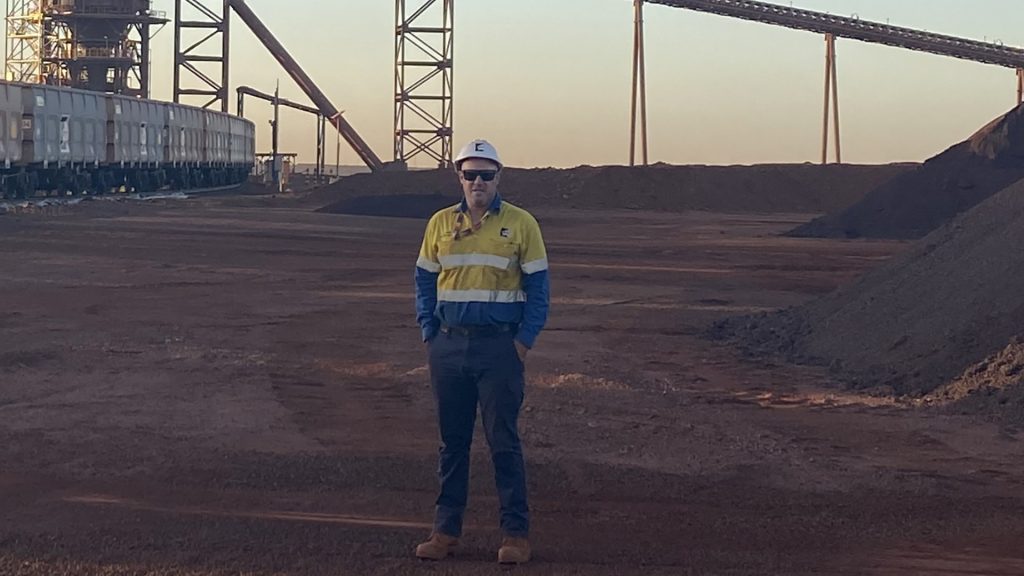
Handyside said he had spoken to colleagues about a broad range of topics so far in his time as a Minder – including anxiety over COVID-19, pressures around finances, general loneliness, uncertainty about employment and the loss of loved ones abroad during the pandemic era.
“Someone who came to talk to me had lost a parent – and because they were in another country, they couldn’t get home to be with family due to the COVID situation,” Handyside explained.
“For me, it was about listening to them in an understanding way but then also trying to set up something within the company to support them through that.
“I wasn’t trying to link them with an external agency in this instance, it was about trying to help them with taking some extra time off and encouraging them to use that to help work through a difficult time.”
Although the Resourceful Mind program has to date operated only been embedded at operations under the CME umbrella, the plan has always been to make it as “open source” and scalable as possible – meaning mining and resources operations of all sizes could use it, and that it could potentially be adapted for other industries.
To learn more about Resourceful Mind, visit the program website.
To find out more about how the WA mining and resources sector is innovating now and for the future, visit safersmartercleaner.com.au


